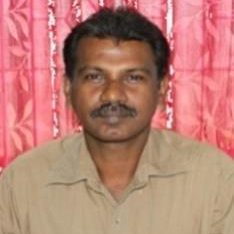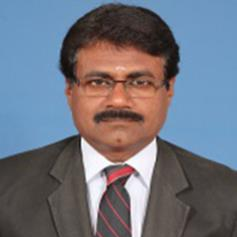International Journal of Wireless and Microwave Technologies (IJWMT)
IJWMT Vol. 8, No. 6, 8 Nov. 2018
Cover page and Table of Contents: PDF (size: 582KB)
EGEC: An Energy Efficient Exponentially Generated Clustering Mechanism for Reactive Wireless Sensor Networks
Full Text (PDF, 582KB), PP.62-72
Views: 0 Downloads: 0
Author(s)
Index Terms
Wireless Sensor Network, EGEC, TEEN, Routing, Clustering Protocol
Abstract
As most of the wireless sensor networks are unattended by humans, the energy is an important issue while deploying nodes of wireless sensor network in hazardous environments. One of the method to preserve energy consumption among sensor nodes is clustering. Using clustering, the nodes send the data to the nearest cluster head instead of far away sink. In applications using reactive wireless sensor networks, a limited number of sensor nodes are activated due to exceed in threshold values and the other nodes are under idle state. As far as the reactive wireless sensor network is concerned, the number of clusters would have been based on the number of active nodes and alive nodes. In this work, an optimum number of clusters is computed based on the ratio between active nodes and alive nodes. Extensive analysis and comparisons are made with existing protocol and found that the proposed methodology outperforms the existing protocol in terms of networks life time and throughput.
Cite This Paper
Sundareswaran P, Rajesh R S, Vardharajulu K N, "EGEC: An Energy Efficient Exponentially Generated Clustering Mechanism for Reactive Wireless Sensor Networks", International Journal of Wireless and Microwave Technologies(IJWMT), Vol.8, No.6, pp. 62-72, 2018. DOI: 10.5815/ijwmt.2018.06.05
Reference
[1]Khedr, Ahmed M., and Walid Osamy. "Effective target tracking mechanism in a self-organizing wireless sensor network." Journal of Parallel and Distributed Computing 71.10 (2011): 1318-1326.
[2]Cerpa, Alberto, et al. "Habitat monitoring: Application driver for wireless communications technology." ACM SIGCOMM Computer Communication Review 31.2 supplement (2001): 20-41.
[3]Estrin, Deborah, et al. "Next century challenges: Scalable coordination in sensor networks." Proceedings of the 5th annual ACM/IEEE international conference on Mobile computing and networking. ACM, 1999.
[4]Akyildiz, Ian F., et al. "A survey on sensor networks." Communications magazine, IEEE 40.8 (2002): 102-114.
[5]Sheng, Zhengguo, et al. "A survey on the ietf protocol suite for the internet of things: Standards, challenges, and opportunities." Wireless Communications, IEEE 20.6 (2013): 91-98.
[6]Acampora, Giovanni, et al. "A survey on ambient intelligence in healthcare." Proceedings of the IEEE 101.12 (2013): 2470-2494.
[7]Zeng, Yuanyuan, et al. "Directional routing and scheduling for green vehicular delay tolerant networks." Wireless networks 19.2 (2013): 161-173.
[8]Chen, Min, et al. "Body area networks: A survey." Mobile networks and applications 16.2 (2011): 171-193.
[9]Nakamura, Eduardo F., Antonio AF Loureiro, and Alejandro C. Frery. "Information fusion for wireless sensor networks: Methods, models, and classifications." ACM Computing Surveys (CSUR) 39.3 (2007): 9.
[10]Wei, Guiyi, et al. "Prediction-based data aggregation in wireless sensor networks: Combining grey model and Kalman Filter." Computer Communications 34.6 (2011): 793-802.
[11]Xiang, Liu, Jun Luo, and Athanasios Vasilakos. "Compressed data aggregation for energy efficient wireless sensor networks." Sensor, mesh and ad hoc communications and networks (SECON), 2011 8th annual IEEE communications society conference on. IEEE, 2011.
[12]Anastasi, Giuseppe, et al. "Energy conservation in wireless sensor networks: A survey." Ad hoc networks 7.3 (2009): 537-568.
[13]Liu, Xuxun. "A survey on clustering routing protocols in wireless sensor networks." Sensors 12.8 (2012): 11113-11153.
[14]Younis, Ossama, and Sonia Fahmy. "HEED: a hybrid, energy-efficient, distributed clustering approach for ad hoc sensor networks." Mobile Computing, IEEE Transactions on 3.4 (2004): 366-379.
[15]Chamam, Ali, and Samuel Pierre. "A distributed energy-efficient clustering protocol for wireless sensor networks." Computers & electrical engineering 36.2 (2010): 303-312.
[16]Smaragdakis, Georgios, Ibrahim Matta, and Azer Bestavros. "SEP: A stable election protocol for clustered heterogeneous wireless sensor networks." Second international workshop on sensor and actor network protocols and applications (SANPA 2004). Vol. 3. 2004.
[17]Rajagopalan, Ramesh, and Pramod Varshney. "Data-aggregation techniques in sensor networks: a survey." IEEE Communications Surveys & Tutorials 4.8 (2006): 48-63.
[18]Heinzelman, Wendi B., Anantha P. Chandrakasan, and Hari Balakrishnan. "An application-specific protocol architecture for wireless microsensor networks." Wireless Communications, IEEE Transactions on 1.4 (2002): 660-670.
[19]Lindsey, Stephanie, and Cauligi S. Raghavendra. "PEGASIS: Power-efficient gathering in sensor information systems." Aerospace conference proceedings, 2002. IEEE. Vol. 3. IEEE, 2002.
[20]Manjeshwar, A., and D. P. Agrawal. "TEEN: a routing protocol for enhanced efficiency in wireless sensor networks." Parallel and Distributed Processing Symposium., Proceedings 15th International. 2001.
[21]Manjeshwar, Arati, and Dharma P. Agrawal. "APTEEN: A hybrid protocol for efficient routing and comprehensive information retrieval in wireless sensor networks." ipdps. IEEE, 2002.
[22]Sundareswaran, P., K. N. Vardharajulu, and R. S. Rajesh. "DECH: Equally Distributed Cluster Heads Technique for Clustering Protocols in WSNs." Wireless Personal Communications 84.1 (2015): 137-151.
[23]Qing, Li, Qingxin Zhu, and Mingwen Wang. "Design of a distributed energy-efficient clustering algorithm for heterogeneous wireless sensor networks." Computer communications 29.12 (2006): 2230-2237.
[24]Liu, Yuhua, Yongfeng Zhao, and Jingju Gao. "A new clustering mechanism based on LEACH protocol." Artificial Intelligence, 2009. JCAI'09. International Joint Conference on. IEEE, 2009.
[25]Furuta, Takehiro, et al. "A new clustering model of wireless sensor networks using facility location theory." Journal of the Operations Research Society of Japan 52.4 (2009): 366-376.


